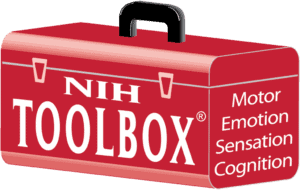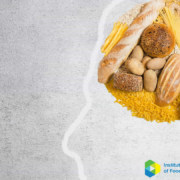Guidance for reporting of test parameters in nutrition and cognition research
In many publications focused on the effects of nutrition on cognitive performance, reporting on both the intervention, and the cognitive performance test (including administration of the test) lacks the required detail to truly understand how the study was conducted, making replication and interpretation difficult. Psychologists commonly develop new tests, but in such cases, there is often missing information about the methodological specifics – a significant barrier to the evidence interpretation and synthesis.
Comparison of studies and synthesis of evidence is critical for arriving at conclusions about how a nutrition intervention might affect cognitive performance. As variability in test selection and test validity – as noted in the DGAC 2020 report - are challenges in the study of nutrition and cognition, additional reporting detail can assist researchers, the food industry, and public health groups to understand the possible reasons for similarities and differences in study results. Perhaps most impactful, authorities responsible for the development of dietary guidance could have improved ability to synthesize available literature on a specific question.
This work will include an initial phase of a scoping review to document common reporting practices (or lack thereof) to note gaps and evaluate if and why reporting guidance is critical. Phase II will leverage the scoping review to develop a Workshop with the aim of outlining reporting guidance, modeling the process applied by a Federation of European Societies for Nutrition (FENS) working group which proposed the CONSORT-nut checklist.
Institution: Swansea University
Principal Investigator: Hayley Young, PhD
Year: 2024
This work was supported by the IAFNS Cognitive Health Committee.
Co-Designed Platform to Aid in Cognitive Test Selection for Research Studies: Understanding Stakeholder Needs
From cross-sector discussions and dietary guidance deliberations globally, it is evident that industry, government, and academic scientists find it challenging to navigate the scientific literature to identify valid and sensitive cognitive performance tests to address nutrition research questions. There is a clear opportunity to facilitate decision-making concerning cognitive test selection – for nutrition studies and other purposes.
A user-friendly resource is needed by which interested parties can enter their specific requirements (e.g., population, cognitive domain of interest) and retrieve information about reliable, valid, and sensitive tests, or alternatively enter a test name, and retrieve information about what is being measured by the test, suitable populations, and nutrients / food / diets to which the test may be sensitive.
This work will: (1) support evidence-based dietary guidance by promoting the ability to synthesize literature; (2) improve the efficiency of research spending; and (3) impact commerce and the economy by providing the technology and services needed to enhance the cost-effective development of food products that benefit cognitive health.
Institution: Swansea University
Principal Investigator: Hayley Young, PhD
Year: 2024
This work was supported by the IAFNS Cognitive Health Committee.
The Scientific Basis of the NIH Toolbox Cognitive Battery

The NIH Toolbox for the Assessment of Neurological and Behavioral Function (NIH Toolbox) is a publicly available set of tests covering cognitive, sensory, motor, and emotional functions in human study participants. The tests are specifically designed for use in large cohort studies and clinical trials, for the assessment of the entire spectrum of functioning from normal through early disease. Unique to the NIH Toolbox, the resource is free of charge to the research community (barring purchase for use on multiple devices). The 2023 IAFNS Summer Research Opportunity Fellow was charged with conducting an extensive review of the selection, validation, and implementation of cognitive performance tests available in the NIH Toolbox specific to memory and attention – two cognitive domains for which evidence suggests a potential influence of nutrition. The full report is now available and posted below.
Institution: Northwestern University, Feinberg School of Medicine
Principal Investigator: Stella Wang, MS MPH
This work was supported in part by the IAFNS’ Cognitive Health Committee.
View the final report here.
Understanding Adolescence as a Critical Period for Immediate and Long-term Cognitive Health Impact – Systematic Review
It is well-established that the prenatal period and infancy (the first 1000 days) are critical for cognitive development, and nutrition during these periods can impact cognitive performance later in life. Specific nutrients are therefore emphasized during pregnancy and infancy, to include choline, iron, folate and iodine, with emerging evidence for a role of many other nutrients and food components. Less attention has been paid to the effects of nutrition in early childhood through adolescence. It is notable that a systematic review was published in January 2022 examining the effects of nutritional interventions on cognitive development in children ages 1 through 6 years (Roberts et al. 2022). Positive effects were identified for supplementation with iron and other nutrients, as well as for fish intake.
The IAFNS committee was not able to identify this type of review for adolescence, either examining effects of nutrients consumed during adolescence on cognitive performance at that age, or later in life. In fact, a recent series on nutrition in adolescence published in the Lancet (see Patton et al. 2022) notes that adolescence has been overlook as a critical growth period, citing the examples of a complete lack of adolescent-specific targets in the Sustainable Development Goals for nutrition. Other than two systematic reviews on related, but peripheral topics, there do not appear to be other reviews, systematic or otherwise, on the topic of the role of nutrient intake broadly in cognitive development and performance during adolescence – or effects of nutrients in adolescence on cognition later in life, indicating a need to document what is known as well as knowledge gaps to support and motivate more work in this area.
Institution: Swansea University
Principal Investigator: Hayley Young, PhD
Year: 2023
This work was supported by the IAFNS Cognitive Health Committee.
View this project on the Center for Open Science's Open Science Framework
Applying Retrospective Harmonization to the Field of Nutrition and Cognitive Health
The 2020 Dietary Guidelines Advisory Committee (DGAC) explored neurocognitive health through several systematic reviews and was faced with a literature having “considerable variation in testing methods, inconsistent validity and reliability of cognitive testing methods, and differences between dietary patterns and cognitive outcomes examined,” reducing the ability to draw conclusions (USDA/HHS 2020). The lack of harmonization is a long-standing challenge in the field of nutrition and cognition, recognized over many decades. As the challenge faced by the 2020 DGAC is likely to still be in place for the 2025 DGAC’s review, one potential solution is to develop an approach to this literature.
Retrospective harmonization approaches may be one way to enable better use of more of the prior research to inform current dietary guidance. These approaches involve placing disparate measures on a common scale. In this way, the value of individual studies using these two different measures can be magnified to better inform clinical practice. A similar approach could be taken for measures commonly used in the nutrition and cognition field. This project involves formation of an Expert Group to develop guiding principles for retrospective harmonization in the field of nutrition and cognition, as well as exploration of a pilot exercise using data from large-scale observational studies and focusing on a specific cognitive outcome.
Expert Group:
Lyn Steffen, PhD, MPH, University of Minnesota – Co-Chair
Rafael de la Torre Fornell, PharmD, IMIM-Hospital del Mar Medical Research Institute – Co-Chair
Amaia Ayala-García, PhD, MPH, Hospital del Mar Research Institute, Barcelona, Spain
Courtney K Blackwell, PhD, Northwestern University
Christina Khoo, PhD, Ocean Spray Cranberries
Maxwell Armand Mansolf, PhD, Northwestern University
Emilio Ros, MD, PhD, IDIBAPS, Barcelona, Spain
Natalia Soldevila-Domenech, PhD, MPH, Hospital del Mar Research Institute, Barcelona, Spain
Linda Snetselaar, PhD, RD, University of Iowa
Tina Wey, PhD, Maelstrom Research, McGill University Health Centre
So Yun Yi, MPH, University of Minnesota
Year: 2023
View this project on the Center for Open Science's Open Science Framework.
This work was supported by the IAFNS Cognitive Health Committee.
Understanding Authoritative Decisions Around Selection and Validation of Cognitive Performance Measures – with a Focus on Nutrition-Related Research
The objective of this project is to document the outcomes of an expert roundtable with the goal to understand decisions and approaches that underlie cognitive assessment tool selection by authoritative groups. This effort aims to enable the advancement of evidence evaluation and evidence development to support future dietary guidance, and to document learnings and how they can be used to support future DGAC evidence reviews related to diet/nutrition and cognitive health.
Principal Investigator: Amy R. Romijn, PhD, Swansea University
Year: 2022
View this project on the Center for Open Science’s Open Science Framework here.
View this project on the PROSPERO website here.
This work was supported by the IAFNS Cognitive Health Committee.
Translation of Consumer-Articulated Cognitive Benefits to Validated Research Tools
The degree to which the outcomes measured by cognitive performance tests are aligned with outcomes of interest to consumers has not been documented. Consumer needs are expressed through specific terms that are meaningful to them. For example, terms commonly used by consumers in the cognitive health space are mood, focus, sharpness, and mental clarity, among others. However, some individuals may view “focus” as spending 20 straight minutes on a task, while others may view “focus” as entering a state of deeper thinking on a problem. Validated cognitive performance research tools may or may not actually be documenting cognitive benefits as understood by consumers, and/or there may be different cognitive tests that evaluate various types of focus. Understanding what research tools are able to demonstrate, and alignment with consumer understanding is critical to the development of products and dietary recommendations that support realizable cognitive benefits.
Institutions: National Opinion Research Center (NORC), at the University of Chicago, Swansea University
Principal Investigators: Alyssa Ghirardelli, MPH, RD, and Laura Wagstaff, MPH, NORC; Hayley Young, PhD, Swansea University
Year: 2022
View this project on the Center for Open Science’s Open Science Framework here.
This work was supported by the IAFNS Cognitive Health Committee. And members of the Expert Group:
David Benton, Swansea University
Carol Byrd-Bredbenner, Rutgers University
Richard Gershon, Northwestern University
Andrew Scholey, Monash University
Hayley Young, Swansea University







